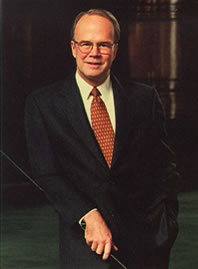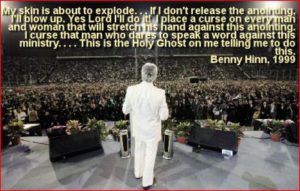 Psalm 22: Dr. James Montgomery Boice (original source here)
Psalm 22: Dr. James Montgomery Boice (original source here)
Theme: Prophesying the Crucifixion
In this week’s lessons we look at how this psalm, written hundreds of years before Christ, describes the details of Jesus’ suffering and death by crucifixion.
Scripture: Psalm 22:1-21
The Lord Jesus Christ is described as his people’s shepherd in three ways. In John 10:11 and 14 he is “the good shepherd,” who gives his life for his sheep. In Hebrews 13:20 he is “that great shepherd,” who has risen from the dead and lives now to direct his people in every good work.
In 1 Peter 5:4 he is “the Chief shepherd,” who has ascended into heaven from whence he will one day return to reward the under shepherds of the church who have been faithful.
It has been pointed out that Psalms 22, 23 and 24 are like that.
Psalm 22 is the song of the dying shepherd, crying out to the Father.
Psalm 23 is the song of the risen shepherd, guiding his sheep through life’s dark wilderness.
Psalm 24 is the song of the ascended shepherd who will reward those who have served faithfully.
It is possible that some may find this pattern a bit forced, particularly in regard to the last two psalms. But there can be no doubt that it applies strikingly to Psalm 22. For this psalm is the “Psalm of the Cross,” the best description in all the Bible of Jesus Christ’s crucifixion.
Most modern writers on the psalms try to find a setting for them either in the life of David, if they believe David was their author, or in the experience of some later writer or group of persons. But it is impossible to do this with this psalm. Some psalms are written out of illness.
But Psalm 22 is not a description of an illness. It is a description of an execution, particularly a crucifixion.
Crucifixion was not practiced in the time of David or for many long centuries afterward. So this is not an account of any suffering endured by any ancient person but a prophetic picture of the suffering to be endured by Jesus when he died to pay the penalty for our sins. In other words, it is prophetic and entirely messianic.
Derek Kidner, who is usually very cautious in such matters, nevertheless writes rightly, “No incident recorded of David can begin to account for this…The language of the psalm defies a naturalistic explanation; the best account is in the terms used by Peter concerning another psalm of David: ‘Being therefore a prophet…he foresaw and spoke of…the Christ’ (Acts 2:30f.).”1
But it is not only that David, being a prophet, foresaw and spoke in this psalm of Jesus’ sufferings. This is also the psalm upon which Jesus himself meditated as he hung on the cross.
We can profit best if we have the main events in mind. Jesus had been arrested the previous night and kept under guard in the house of the High Priest in order to be tried formally by the Sanhedrin in the morning. When day dawned he was quickly tried, convicted of blasphemy and then taken to Pilate’s Jerusalem residence for sentencing, since the Jewish court was unable to carry out the death penalty while Rome ruled Palestine. There were unexpected delays with Pilate. But at last his judgment was secured and Jesus was led through the streets of the city to Golgotha bearing his cross. Continue reading

